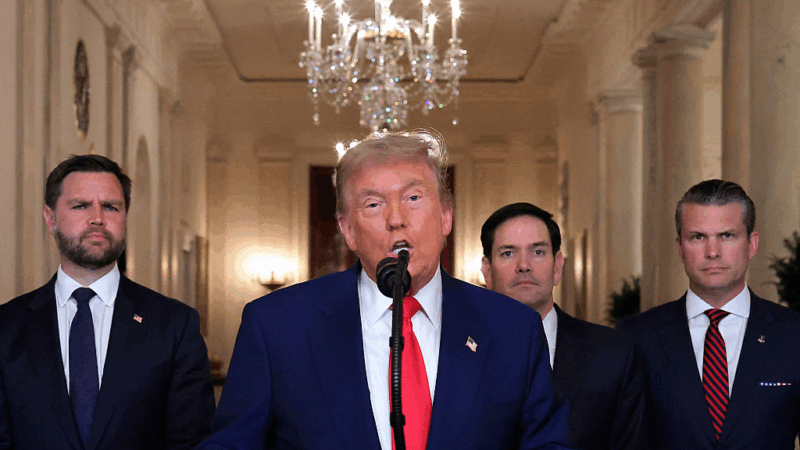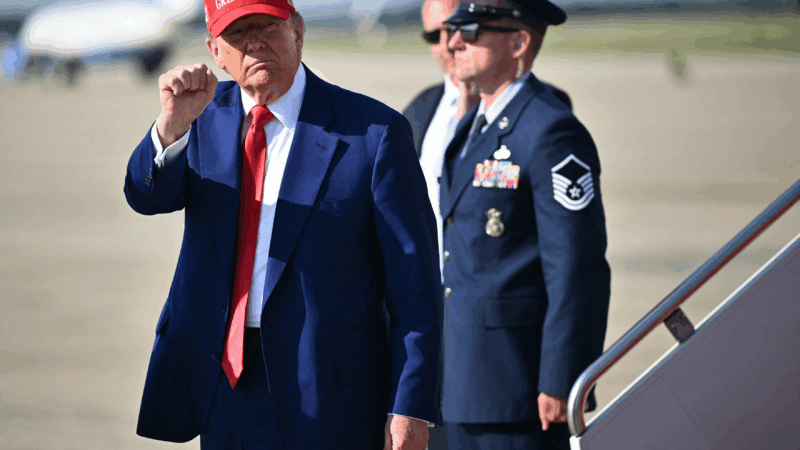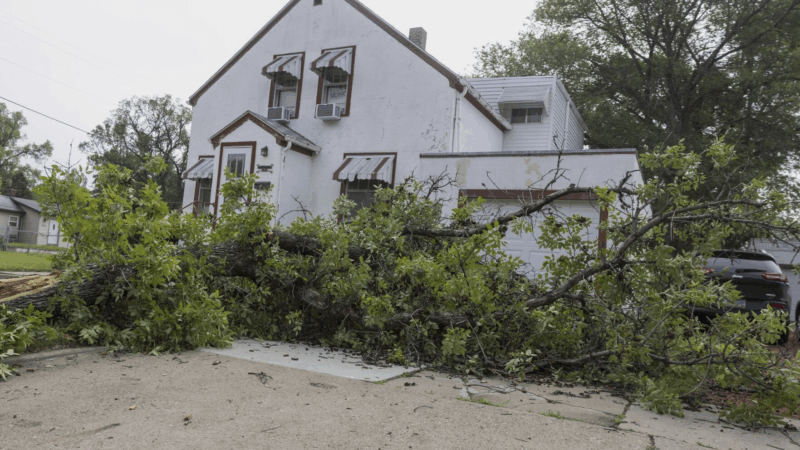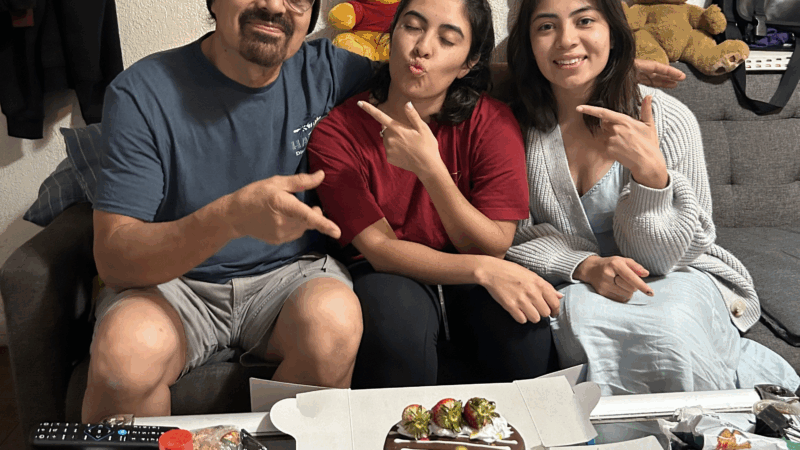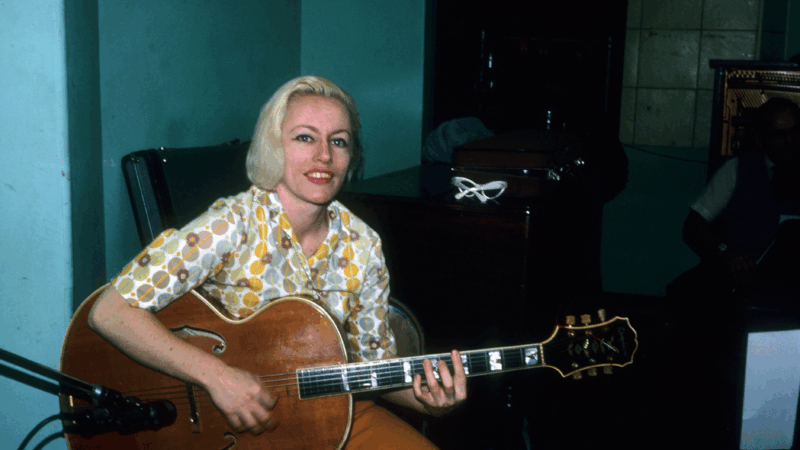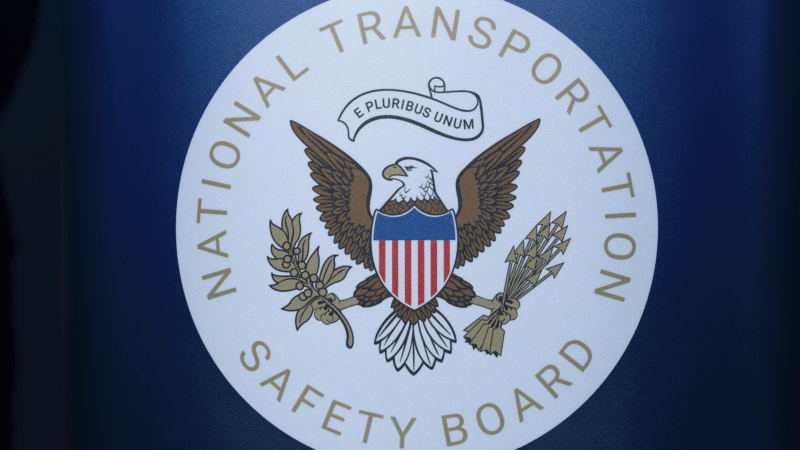South African cellist Abel Selaocoe fosters dialogue across time and cultures in a new album
Strings and wood become harp and drum accompanying cellist Abel Selaocoe’s chants and throat singing in his new album Hymns of Bantu, out this month. It’s just one of the many ways he makes alchemy out of blended Western and African traditions.
“Percussion is imitating the language, melodic instruments are imitating the voice,” Selaocoe told Morning Edition host Michel Martin during a recent visit to NPR’s headquarters in Washington, D.C. Wearing a patterned red and black jumper, he had pulled up his dreadlocks in a ponytail.
As a child, Selaocoe was already in the business of transforming things around him. He had fallen in love with the cello, but string instruments were hard to come by in the Black community where he grew up south of Johannesburg in the early years following the official end of apartheid. So with help from his brother, he drew the four strings of a cello on a piece of paper, figured out which hand positions produced which pitches and, having stuck the paper on his chest, pretended to play the instrument.
“Those kinds of things were just experiments to come around to the whole idea that you didn’t have much access. But actually we could still learn and we had that opportunity,” he said. But pretend playing with paper or even a broomstick didn’t make Selaocoe feel like any less of a budding musician, he recalled, “because you don’t know when you don’t know.”
And once he actually got a cello, everything fell into place.
“The template we knew was the music we sing at home, and of course, my teacher afterward kind of opened up the world of classical music, mostly starting with Bach,” recalled Selaocoe. “And I thought, okay, there are two worlds now, but I have to make sure that they live in the same space.”
Certain notes and phrases are only suggested or briefly heard in the German Baroque composer’s Sarabande from his sixth and final cello suite, written for solo instrument. An arrangement by Fred Thomas has a string orchestra sound them out as an accompaniment.
“I can imagine Bach sitting maybe at an organ, something that breathes air into its tubes and sustains these notes. And we thought having a string arrangement would actually have that effect,” Selaocoe explained. “I just can see Bach sitting there singing and playing it… In my imagination, anybody from any other culture could be doing the same.”
Elsewhere on the album, Selaocoe improvises on “Les voix humaines” (Human Voices), a piece originally written for an ancestor of the cello, the viola da gamba, by French composer Marin Marais, who died nearly 300 years ago.
Selaocoe finds parallels with old South African songs that used a type of polyphony known as umngqokolo where a singer can produce two notes at the same time – a fundamental pitch along with harmonic overtones. “We began to look a bit like each other sometimes through hymnal singing,” Selaocoe said. “And I thought those worlds should collide into one place.”

Much of the album is made up of exactly that kind of melding. In “Emmanuele,” Selaocoe showcases his talents as a vocalist, shifting from hums to chants and breaking into vocal clicks and overtones. All that comes on top of competing catchy rhythms from accompanying electric bass, drums and strings.
“If I don’t sing, I feel very muted as a human being,” he said, pointing to the traditional community-building role of song in South African culture. “It’s kind of a balm for many, many ailments.” The song takes its title from an eponymous South African hymn that is also another name for Jesus and means “God with us.” It’s dedicated to working people.
Selaocoe, who is based in the United Kingdom, frequently performs with his experimental trio Chesaba and his Bantu ensemble. Both blend African and Western traditions. “I’m an African person with African ideals, but those ideals are connected to the universality of the world,” he said.
The audio version of this story was produced by Barry Gordemer. The digital version was edited by Obed Manuel.
The Pentagon is set to hold a briefing after U.S. strikes Iran
Secretary of Defense Pete Hegseth will speak to reporters the morning after President Trump announced the U.S. had attacked three nuclear facilities in Iran, aiding Israel in its conflict with the country.
U.S. completes strikes on Iran nuclear sites, Trump says
The U.S. has completed attacks on three nuclear sites in Iran, President Trump wrote on Truth Social on Saturday.
At least three people dead from a tornado in North Dakota
At least three residents were killed in the Enderlin area by a tornado on Friday night after storms hit North Dakota and Minnesota.
One daughter’s search for a father detained by ICE
Francisco Urizar, 64, was detained by ICE while on his work route delivering tortillas. His daughter Nancy is trying to find out what happened to him.
Star bassist Carol Kaye rejects Rock & Roll Hall of Fame honor
One of the most in-demand session players of the 1960s, Kaye was listed alongside the late record producer Thom Bell and the late pianist Nicky Hopkins as inductees in the Musical Excellence category.
Pilot who died in N.C. plane crash tried to avoid a turtle on airport runway
The pilot of a small plane that crashed near an airport tried to avoid hitting a turtle on the runway, according to a National Transportation Safety Board report. The pilot and a passenger were killed.


